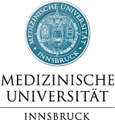Donnerstag, 20.06.2024
Solving International Conflicts Through Mediation? On the Significance of Contemporary 3rd Party Interventions
18:30 - 20:00 Uhr
HS 1 (SoWi), Universitätsstraße 15, 6020 Innsbruck
Anmeldung ist nicht erforderlich
Eintritt / Kosten: Eintritt frei
Vortragende/r
Prof. Dr. Ahmet Sözen (Eastern Mediterranean University, North Cyprus)
Weitere Informationen
About the lecture: This keynote presentation by Ahmet Sözen will examine notions of 3rd party intervention – particularly mediation – processes in the solution and irresolution of protracted conflicts through the conceptual lenses of international relations, especially utilizing different levels of analysis, as well as peace and conflict studies.
In this presentation, the focus will be on three cases: (1) solution(s) of the Russian invasion of Ukraine, (2) solution(s) of the War in Gaza; Israel-Palestine and broader Israel-Arab conflict, and (3) the solution of the Cyprus conflict and its spillover effects. Here, the goal is to get the audience engaged in evaluation and rethinking of 3rd party intervention (mediation) processes in various levels (individual, societal, state and systemic) in the solution/irresolution of conflicts. The presentation will draw on scholarly and practical applied knowledge and experiences so that the audience will have a comprehensive understanding of the complexity of 3rd party intervention/mediation in conflict situations.
Personal details: Ahmet Sözen is Professor of Political Science and International Relations at the Eastern Mediterranean University, North Cyprus, and currently Guest Professor at the Unit for Peace and Conflict Studies at the University of Innsbruck. His experience over the last thirty years includes peace-building and democratization processes such as participating into formal UN-hosted peace-negotiations in Cyprus; active involvement in second-track peace and democratization initiatives; providing training and education in the areas of conflict resolution, negotiation, mediation and peace-building; designing policy recommendations based on objective participatory research with the societal stakeholders and polling. His background also includes more than twenty years of experience in running policy think-tanks.
Veranstalter
Unit for Peace and Conflict Studies in cooperation with the Department of Political Science

